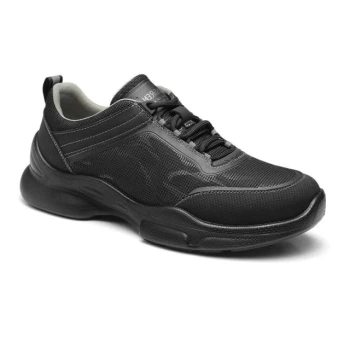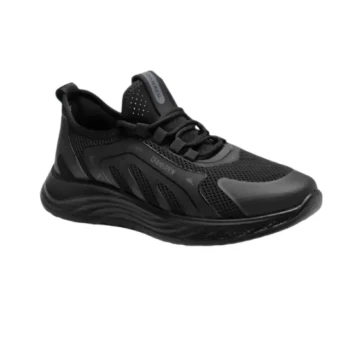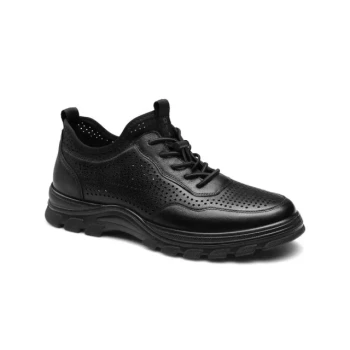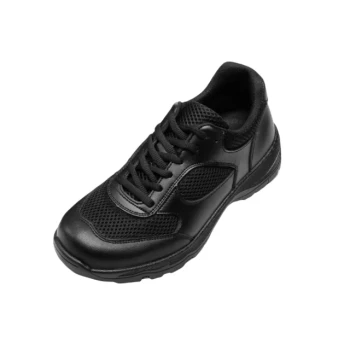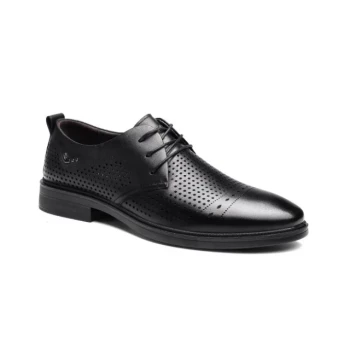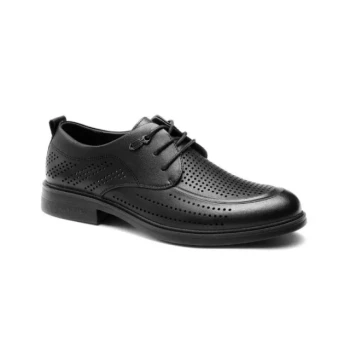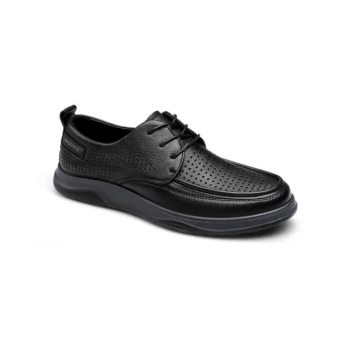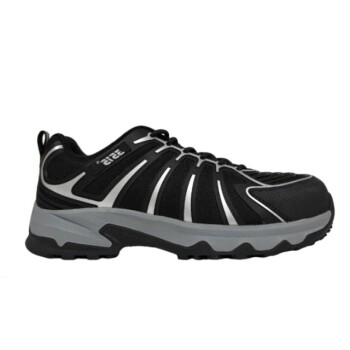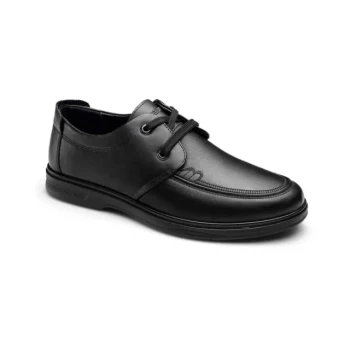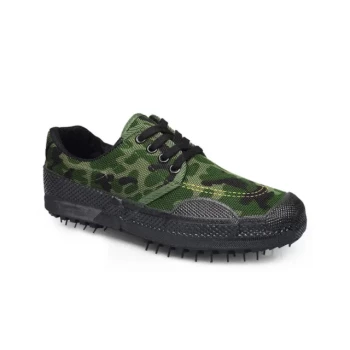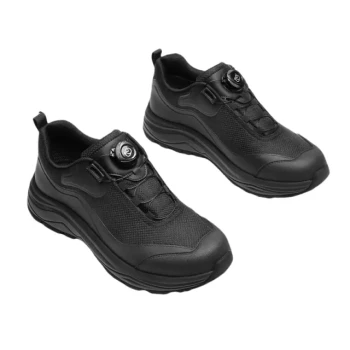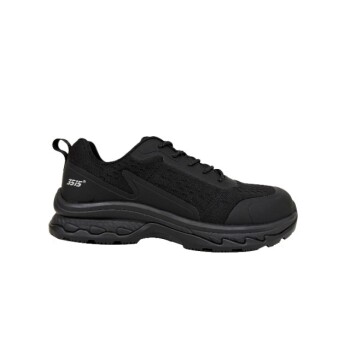At its core, the choice between man-made materials and leather in footwear is a direct trade-off between immediate cost and long-term comfort. Man-made options like vinyl or urethane offer lower prices and easier maintenance, while genuine leather provides superior breathability and the ability to conform perfectly to your foot over time.
The decision isn't about which material is universally "better," but which set of properties—affordability and convenience versus personalized comfort and durability—aligns with your specific needs and priorities for a given pair of shoes.
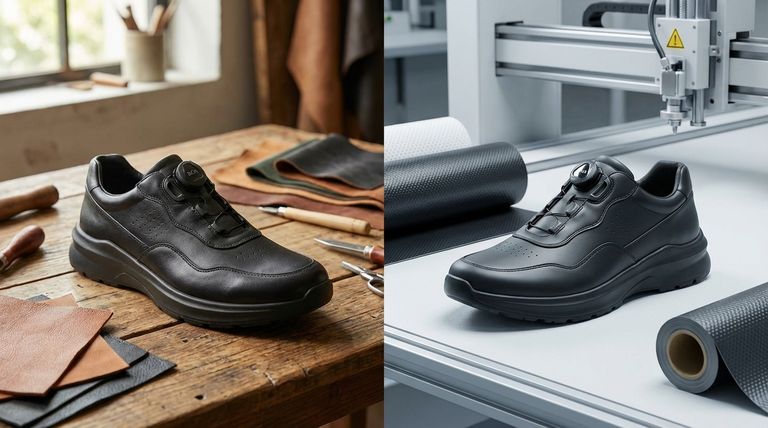
The Case for Man-Made Materials
Man-made, or synthetic, materials have become a staple in modern footwear for several practical reasons. They are engineered to deliver specific performance characteristics consistently and affordably.
Lower Initial Cost
The manufacturing processes for synthetics like vinyl and urethane are significantly less expensive than sourcing, treating, and processing natural animal hides. This cost saving is passed directly to the consumer.
Simplified Maintenance
Most synthetic uppers are non-porous, making them inherently resistant to water and stains. A simple wipe with a damp cloth is often all that is needed to keep them looking clean.
Aesthetic Versatility
Because they are created artificially, man-made materials can be produced in a nearly infinite variety of colors, textures, and finishes. This allows for greater design freedom and trend-driven styles at a lower price point.
The Enduring Appeal of Leather
Leather has been the traditional material for quality shoemaking for centuries, prized for its unique combination of natural properties that are difficult to replicate.
Superior Breathability
As a natural skin, leather is porous. This allows moisture vapor from your feet to escape, which is critical for regulating temperature and maintaining comfort during extended wear.
Unmatched Shape Retention
The defining characteristic of leather is its ability to stretch and mold to the unique shape of the wearer's foot. Over time, this creates a custom, comfortable fit that synthetic materials cannot match.
Understanding the Trade-offs
Neither material is perfect. Acknowledging their inherent disadvantages is key to making an informed choice and avoiding disappointment.
The Comfort Deficit of Synthetics
The primary drawback of man-made materials is their lack of breathability. By trapping moisture, they can lead to discomfort and less hygienic conditions for your feet. They also do not break in or conform to your foot, retaining their original shape indefinitely.
The Maintenance Demands of Leather
Leather is a natural material that requires care to maintain its integrity. Without regular cleaning and conditioning, it can dry out, crack, or become permanently stained, compromising both its appearance and flexibility.
How to Apply This to Your Purchase
Your final decision should be guided by how you intend to use the shoes and what you value most in footwear.
- If your primary focus is affordability and low maintenance: Choose man-made materials for shoes you may wear infrequently or for trend-focused styles where longevity is not the main concern.
- If your primary focus is long-term comfort and durability: Invest in leather for everyday shoes, work footwear, or classic styles you intend to keep for years.
Ultimately, choosing the right material is about matching its inherent strengths to your personal definition of value.
Summary Table:
| Material | Key Advantages | Key Disadvantages |
|---|---|---|
| Man-Made (Synthetic) | Lower initial cost, Easy maintenance, High design versatility | Less breathable, Does not mold to foot shape |
| Leather | Superior breathability, Molds to foot for custom fit, Long-lasting durability | Higher initial cost, Requires regular maintenance |
Struggling to choose the right material for your footwear line? As a large-scale manufacturer, 3515 produces a comprehensive range of footwear for distributors, brand owners, and bulk clients. Our production capabilities encompass all types of shoes and boots in both leather and high-performance synthetics. Let our experts help you select the perfect material to balance cost, comfort, and style for your target market.
Contact 3515 today to discuss your manufacturing needs and get a quote!
Visual Guide
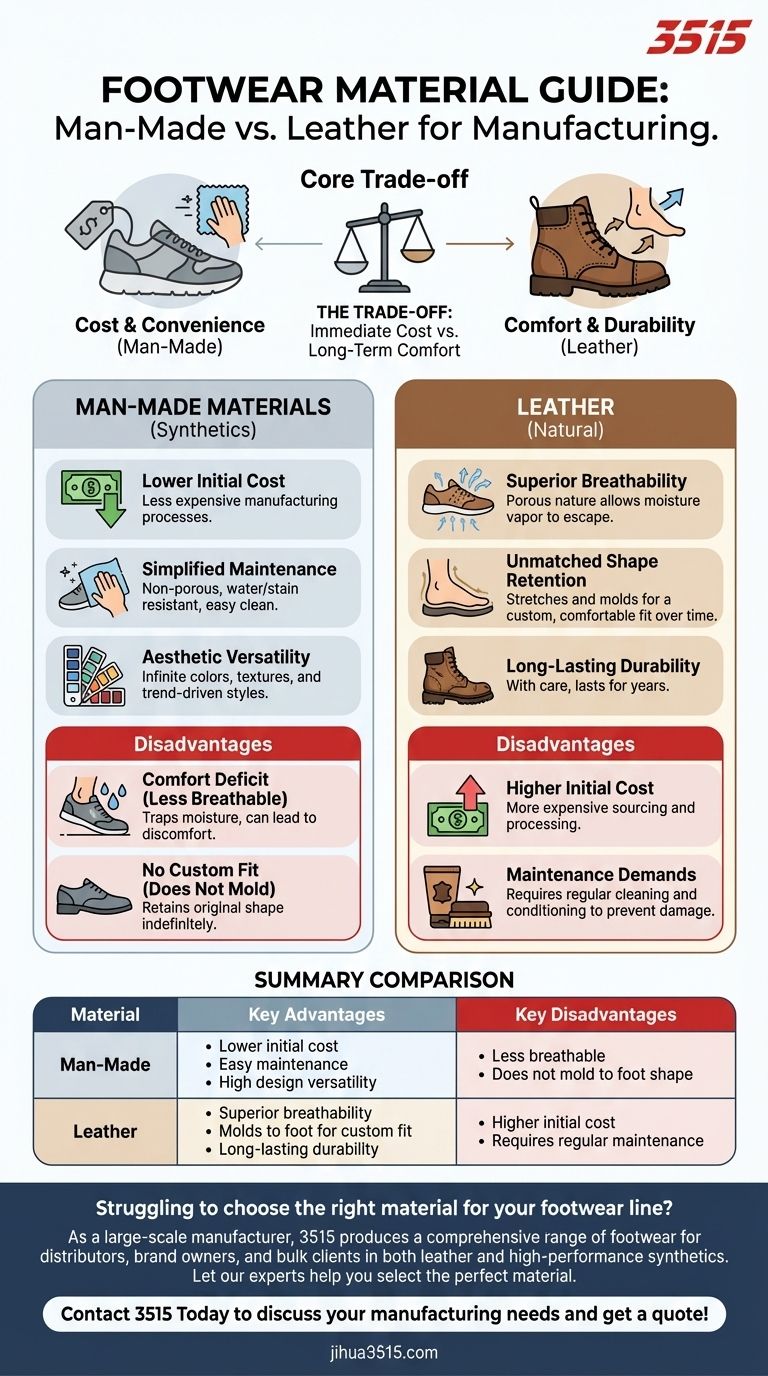
Related Products
- Factory Direct Wholesale Leather Comfort Shoes with Dial Closure
- Wholesale Breathable Training Shoes Custom Athletic Footwear Manufacturer
- Wholesale Breathable & Cushioned Training Shoes Custom Factory Production
- Wholesale Modern Perforated Leather Derby Shoes with Chunky Sole for Custom Branding
- Custom Manufactured Air Cushion Leather Business Shoes for Wholesale
People Also Ask
- What is the function of structured questionnaires in footwear market research? Harness Data for Strategic Decisions
- How do winter cycling shoes retain warmth? The Integrated System for Cold-Weather Riding
- Why is an industrial-grade whole-shoe flexing tester necessary for EVA footwear? Ensure Quality and Durability
- What role do auxiliary materials play in leather shoe product mix optimization? Maximize Profit & Stability
- How do high-precision sewing and manual finishing enhance footwear durability? Master the Art of Long-Lasting Quality
- How do industrial injection molding machines contribute to shoe manufacturing? Scale Production with High Consistency
- How do synthetic materials compare to leather in boot construction? Choose the Right Material for Your Needs
- What should you consider when fitting motorcycle boots? A Guide to Optimal Fit, Safety, and Comfort

